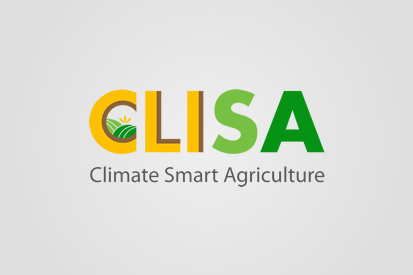
The following projects will be carried out under this research theme:
Building Sustainable and Climate-Resilient Crop Production Systems: Decades of intensive cropping have degraded fertile land, depleted groundwater, triggered an increase in pests, eroded biodiversity, and polluted the air, water, and soil in many countries. Intense crop production is no longer sustainable. This project aims to build sustainable and climate-resilient crop production systems through the application of the state-of-the-art precision agriculture technologies. For example, an artificial intelligence-based machine vision technology will be developed to identify plant pests (weeds, insects, and diseases) in real-time for targeted applications of agrochemicals. The Soil, Water, and Topography (SWAT) maps will be developed through an innovative digital camera which can be mounted on agricultural machinery and capture high-resolution images of crops. The SWAT maps can be used to execute variable rate fertilizer, seed, soil amendment, pesticide, and precision water management. Through this project, the CLISA trainees will use various cameras and sensors to create maps of potato fields across PEI and build site-specific precision applications for variable rate fertilizer, soil amendments, pesticide/herbicide/fungicide, and evaluate spatiotemporal patterns during the growing season for a hands-on experience of precision agriculture.
Sustainable Biomaterials for Reducing GHG Emissions: Agricultural production systems generate low value biomass resources that can be utilized for novel bio-based materials that can substitute fossil fuel-based plastic materials. Reduction of plastic waste generated on the farm, food processing and food packaging industry is also needed to improve the environmental impact of the agriculture. This project will focus on the novel materials that are sustainable – materials derived from renewable, recycled and waste carbon resources and their combinations, which at the end-of-life can be recycled, biodegraded or composted. Biobased materials derived from agricultural biomass generally exhibit reduced environmental impact through their life cycle. The sustainable materials will be developed considering Circular Economy principles. Development of new manufacturing materials is one of the needed building blocks toward the realization of a Circular Economy. Trainees will have an opportunity to design, test and evaluate impact of new sustainable materials needed to replace current materials from non-renewable fossil fuels, particularly in packaging.
Building Sustainable and Inclusive Food Value Chains: A considerable amount of food is lost and wasted throughout the food value chain, leading to considerable GHG emissions. This project aims to develop a more sustainable and inclusive flood value chain framework in the context of Canada with consideration of the core value chain, including: the value chain actors (e.g., private sector actors and public sector organizations), four core stages (i.e., production/farming, aggregation, processing, and distribution – wholesale or retail), and governance structure (i.e., government mechanisms and linkages between different chain actors). The CLISA trainees will be working on three primary components: (1) examining how value chain stakeholders and their activities are linked to each other, their economic, social and natural environments, and the individual stakeholder behaviour in their business interactions; (2) developing a vision that all stakeholders agree on, and improving activities and multilateral partnerships that support the strategy; and (3) measuring the impacts of the development in terms of economic, social and environmental outcomes. This will help broaden the trainees’ understanding of the core food value chain from a life-cycle perspective by connecting their research questions with local businesses within the food value chain.

CLISA is the first multi-institutional training program in Canada towards climate smart agriculture to help address the need for HQPs who possess appropriate knowledge and expertise in climate change, precision agriculture, water and soil management, sustainable food production and food value chains, and climate-smart financing and policies to promote the development and application of innovative technologies and strategies in Canadian farming practices.